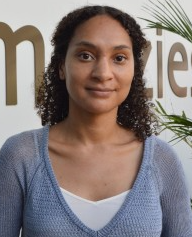
Sarah Auburn
Menzies School of Health Research
Australia
EMBL Conference
This conference will take place at EMBL Heidelberg, with the option to attend virtually.
Late registrations for onsite participation is possible. Please contact Diah Yulianti to get the registration link.
Malaria remains one of the most significant global public health challenges, with more than 200 million clinical cases worldwide each year. The lack of a vaccine that provides effective long-term protection and the continual emergence of drug-resistant malaria parasites emphasises the need for new control and prevention strategies.
This need for innovation has become even more apparent with the disruption of global malaria control programs due to the COVID-19 pandemic and potential reversal of gains made over the last few decades, highlighted through a marked increase in malaria deaths in recent years.
The generation of fundamental knowledge lies at the heart of developing new tools and innovations for malaria intervention. The malaria research community has a long history of being a highly collaborative field, reliant on diverse technologies, sharing of resources and dissemination of biological advances made. Now more than ever it is important that we take advantage of the full diversity of the malaria scientific community to share the advances of cross-disciplinary work that are vital for the translation of new ideas into public health impact.
BioMalPar XIX will showcase the multidisciplinary nature of malaria research with a programme that welcomes clinical malaria, epidemiological studies, immunology, and evolution and ecology alongside core BioMalPar topics. The programme focuses on early-mid career researchers to help mitigate the effects of the COVID-19 pandemic which have been particularly acute for these stages.
“Just what I needed: great speakers, and I got a lot out of it. If you are passionate about parasite biology this is one event you should not miss. Special thanks to EMBL Advanced Training Centre Corporate Partnership Programme for providing financial assistance to attend the meeting.” – Sunil Narwal CSIR-Central Drug Research Institute, Lucknow, India
“Biomalpar 2021 was an excellent platform for a fresh PhD student like me to get exposure to various interesting research topics in malaria. I am very happy and grateful to join and totally pumped with ideas after this year conference. Thank you EMBL for this precious opportunity and see you again next year!” – Tra Nguyen, National University of Singapore, Singapore

Menzies School of Health Research
Australia
EMBL Barcelona
Spain
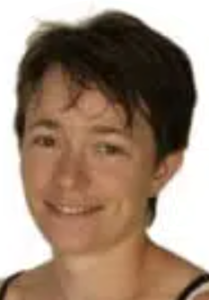
National Institute for Health and Medical Research (Inserm) and Institute of Molecular and Cell Biology
France
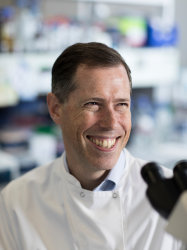
Imperial College London
UK
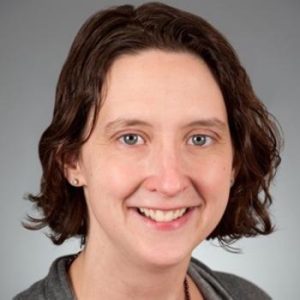
Stanford University
USA
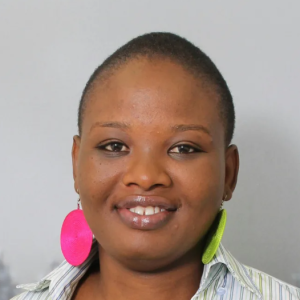
University of Oxford and KEMRI Wellcome Trust
UK
(Virtual speaker)
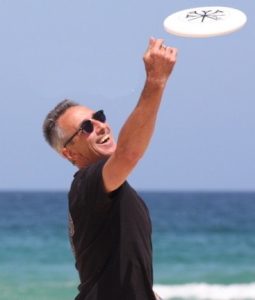
University of Melbourne
Australia

Massachusetts Institute of Technology
USA
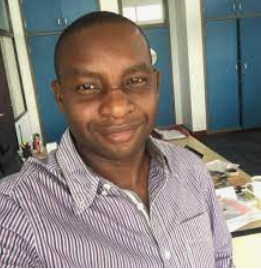
University of Malawi
Malawi
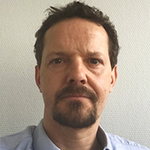
National Institute for Health and Medical Research (INSERM) and Sorbonne University
France
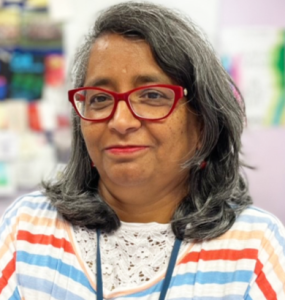
University of Nottingham
UK
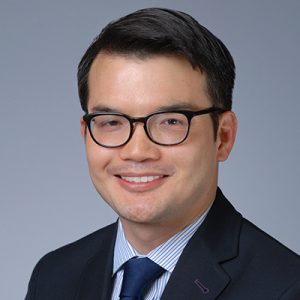
Indiana University School of Medicine
USA
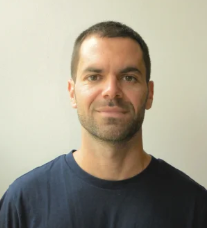
University of Bristol
UK
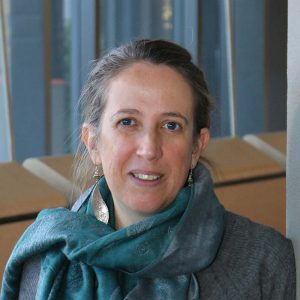
QIMR Berghofer Medical Research Institute
Australia
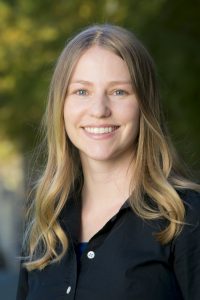
Duke University
USA
Got something to say? Tweet it! #EMBLMalaria
| Time (Europe/Berlin) | Speaker |
|---|---|
| 09:30 – 10:45 | Arrival / Registration and refreshments |
| 10:45 – 11:00 | Opening remarks by scientific organisers |
| Scientific session 1 – Evolution and ecology Chairs: Tra Nguyen – National University of Singapore, Singapore Jesús Alvarado Valverde – EMBL Heidelberg, Germany | |
| 11:00 – 11:30 | Drug resistance in malaria parasites & inheritance of resistance genes Geoff McFadden – University of Melbourne, Australia |
| 11:30 – 11:45 | Insecticide resistance and vector competence Victoria Ingham – Heidelberg University Hospital, Germany |
| 11:45 – 12:00 | Unpacking the EIP: how mosquito resources affect parasite development and infectivity to vertebrate hosts Catherine Oke – University of Edinburgh, UK |
| 12:00 – 12:30 | Molecular surveillance of Plasmodium vivax: new developments in the vivax Genomic Epidemiology Network Sarah Auburn – Menzies School of Health Research, Australia |
| 12:30 – 12:45 | Widely varying switching rates of var genes in Plasmodium falciparum are evolutionary optimized Gayathri Iragavarapu – IIIT-H, India VIRTUAL TALK |
| 12:45 – 14:00 | Lunch and Meet the speakers (virtual and onsite) |
| Scientific session 2 – Clinical and field studies Chairs: Giulia Siciliano – Istituto Superiore di Sanità, Italy Mayimuna Nalubega – QIMR Berghofer Medical Research Institute, Australia | |
| 14:00 – 14:30 | Gift that keeps giving: lessons learned about malaria from CHMI studies Melissa Kapulu – University of Oxford and KEMRI Wellcome Trust, UK VIRTUAL TALK |
| 14:30 – 14:45 | Exploring neutrophils in cerebral malaria (plasmodium falciparum) in malawian children Watipenge Nyasulu – Malawi-Liverpool Welcome Clinical Research Programme, UK |
| 14:45 – 15:00 | Recent increase in low complexity polygenomic infections and sialic acid-independent invasion pathways in Plasmodium falciparum from Western Gambia Nora Nghochuzie Nganyewo – Medical Research Council Unit The Gambia at London School of Hygiene and Tropical Medicine, Gambia |
| 15:00 – 15:30 | Translational applications of the blood transcriptome in malaria Aubrey Cunnington – Imperial College London, UK |
| 15:30 – 15:45 | Reversible host cell surface remodeling of Plasmodium falciparum gametocytes limits immune recognition and maximizes transmission Priscilla Ngotho – University of Glasgow, UK VIRTUAL TALK |
| 15:45 – 16:15 | Coffee break and Meet the speakers |
| 16:15 – 16:50 | Flash talks session 1 Poster number 39 Dimuthu Angage Poster number 41 Shany Assaraf Poster number 53 Casilda Castellano Poster number 63 Bijayeeta Deb Poster number 115 Francisco Martinez Poster number 137 Samuel Pazicky Poster number 139 Joana Santos Poster number 147 Gala Ramon Zamorano Poster number 169 Tatyana Tavella Poster number 171 Liana Theodoridis Poster number 183 Lasse Votborg-Novél |
| 16:50 – 18:50 | Poster session 1 (odd numbers) List of posters is available here. |
| 18:50 – 20:30 | Dinner (EMBL canteen) |
| 20:30 – 22:00 | Science pub quiz (optional) |
| 21:30 – 22:30 | Welcome drinks (optional) |
| 20:30, 21:30, 22:30 | Buses downtown |
| Time (Europe/Berlin) | Speaker |
|---|---|
| Scientific session 3 – Immunology and vaccines Chairs: Anna Bachmann – Bernhard Nocht Institute for Tropical Medicine, Germany Vincent Geoghegan – University of York, USA | |
| 09:00 – 09:30 | Severe malarial anaemia: pathogenesis to prevention Kamija Phiri – University of Malawi, Malawi |
| 09:30 – 09:45 | Structure of the malaria vaccine candidate Pfs48/45 and its recognition by transmission blocking antibodies Kuang-Ting Ko – University of Oxford, UK |
| 09:45 – 10:00 | Plasmodium falciparum exoerythrocytic forms require the PTEX translocon for development in human hepatocytes Robyn McConville – Walter and Eliza Hall Institute, Australia |
| 10:00 – 10:30 | Single-cell multiomic characterization of peripheral immune cells in children who remain aparasitemic despite intensive exposure to Plasmodium falciparum malaria Tuan M Tran – Indiana University School of Medicine, USA Not available on demand, live only |
| 10:30 – 11:00 | Coffee break |
| 11:00 – 11:45 | Lifetime achievement award Recipient : Leann Tilley – University of Melbourne, Australia |
| 11:45 – 13:00 | Lunch and Meet the speakers |
| Scientific session 4 – Transmission and vector – parasite interactions Chairs: Franziska Hentzschel – Heidelberg University, Germany Sabrina Absalon – Indiana University School of Medicine, USA | |
| 13:00 – 13:30 | Manipulating mosquito/parasite interactions to decrease malaria transmission Stephanie Blandin – National Institute for Health and Medical Research (Inserm) and Institute of Molecular and Cell Biology, France |
| 13:30 – 13:45 | Investigating sporozoite development through the mosquito Ben Liffner – Indiana University School of Medicine, USA |
| 13:45 – 14:15 | Functional heterogeneity of microneme proteins in Plasmodium sporozoites Olivier Silvie – National Institute for Health and Medical Research (INSERM) and Sorbonne University, France |
| 14:15 – 14:30 | A microtubule binding protein is critical for male gamete fertility in Plasmodium falciparum Sudhir Kumar – Seattle Children’s Research Institute, USA VIRTUAL TALK |
| 14:30 – 15:00 | Coffee break and Meet the speakers |
| 15:00 – 15:35 | Flash talks session 2 Poster number 68 Melanie H. Dietrich Poster number 72 Nick Dooley Poster number 70 Giulia Siciliano Poster number 158 Mohini Anjna Shibu |
| 15:35 – 17:30 | Places are limited. Registration required. Available for onsite participants. Workshop 1: Expansion microscopy Trainers: – Sabrina Absalon – Indiana University School of Medicine, USA – Mathieu Brochet – University of Geneva, Switzerland – Julien Guizetti – Heidelberg University Hospital, Germany Room: Courtyard Room Please register here. Workshop 2: Malaria single-cell transcriptomics analysis Trainers: – Franziska Hentzschel – Heidelberg University Medical School, Germany – Thomas Otto – University of Glasgow, UK Room: Flex Labs Please register here. Workshop 3: Public engagement Trainer: – Hannah Bialic – Wellcome Centre for Integrative Parasitology, UK Room: Helix Seminar Room A Please register here. |
| 17:30 – 19:30 | Poster session 2 (even numbers) List of posters is available here. |
| 19:30 – 20:45 | Dinner (EMBL canteen) |
| 20:45 – 23:30 | Social event with live DJ & drinks |
| 21:00, 22:00, 00:00 | Buses downtown |
| Time (Europe/Berlin) | Speaker |
|---|---|
| Scientific session 5 – Systems biology of malaria: molecules, cells, physiology and pathobiology Chairs: Michaela Bulloch – University of Melbourne, Australia Clinton Lau – University of Oxford, UK | |
| 09:00 – 09:30 | Deciphering the role of the red cell in Plasmodium falciparum malaria Elisabeth Egan – Stanford University, USA |
| 09:30 – 09:45 | Structure of the PfRCR complex which bridges the malaria parasite and erythrocyte during invasion Brendan Farrell – University of Oxford, UK |
| 09:45 – 10:00 | Exploring the role of uncoupled MCT1-basigin interaction and host membrane receptor context in Plasmodium falciparum merozoite invasion Tim Satchwell – University of Bristol, UK |
| 10:00 – 10:15 | Covalent probe reveals Ubc13 interactome in the malaria parasite Anna Truong – Duke University, USA |
| 10:15 – 10:45 | Coffee break and Meet the speakers |
| 11:00 – 11:30 | Divide and Rule: Unravelling atypical cell division in Plasmodium Rita Tewari – University of Nottingham, UK |
| 11:30 – 11:45 | A Plasmodium-specific AP2-P regulates multiple pathogenicity factors with dual expression peaks during the intraerythrocytic developmental cycle Amit Kumar Subudhi –King Abdullah University of Science and Technology, Saudi Arabia |
| 11:45 – 12:00 | The Plasmodium falciparum artemisinin resistance protein Kelch 13 is required for formation of normal cytostomes and parasite feeding Stuart Ralph – The University of Melbourne, Australia |
| 12:00 – 13:15 | Lunch and Meet the speakers |
| Scientific session 6 – New topics and tools for malaria research and future innovation Chairs: Kodzo Atchou – University of Bern, Switzerland Nick Dooley – QIMR Berghofer Medical Research Institute, Australia | |
| 13:15 – 13:45 | Understanding cerebral malaria pathogenesis in a 3D blood-brain barrier model Maria Barnebeu – EMBL Barcelona, Spain Not available on demand, live only |
| 13:45 – 14:00 | Culture-adapted Plasmodium cynomolgi Berok transgenic parasites open up new avenues to accelerate drug discovery approaches for relapsing malaria Alexandra Probst – Novartis Institute for Tropical Diseases, USA |
| 14:00 – 14:15 | Aptamers targeting Plasmodium falciparum ESCRT-III proteins as a potential antiplasmodial tool Yunuen Avalos Padilla – Institute for Bioengineering of Catalonia, Spain |
| 14:15 – 14:30 | Towards a multimodal 3D cell atlas of Plasmodium mosquito stages Nedal Darif – EMBL Heidelberg, Germany |
| 14:30 – 15:00 | A chemogenetics platform for antimalarial drug target identification and hit discovery Jacquin Niles – Massachusetts Institute of Technology, USA |
| 15:15 – 15:30 | Closing remarks by scientific organisers |
| 16:00 | Buses departing |
You can choose to attend the conference either onsite in Heidelberg or virtually. If you hope to present your research, you need to decide which mode suits you best before the abstract submission deadline, considering the below:
If you plan to attend the conference onsite, you can register and apply for an oral or poster presentation. A selection process will take place with the results announced 2-3 weeks after the abstract submission deadline. Please note that once you have registered for onsite attendance and submitted an abstract for an oral presentation, you will still have the opportunity to present a poster onsite even if not selected for an onsite oral presentation. However, it is not possible to switch and apply for a virtual oral presentation after the submission deadline.
If you plan to attend the conference virtually, you can only apply for a virtual oral presentation as there will be no virtual posters. If your abstract is not selected for a virtual oral presentation, you can still participate in the conference with access to all the live streamed talks, a video library of the recorded talks and a facility to submit questions. Only participants attending the event onsite can present a poster.
On-site registration fees include admission, conference materials, meals and coffee breaks. Participants are expected to book and pay their own accommodation and travel expenses.
Virtual registration fees include access to all of the talks (livestreamed and on demand) and facility to submit questions.
| On-site Academia | €710 |
| On-site PhD Student | €610 |
| On-site Industry | €910 |
| Virtual Academia | €200 |
| Virtual PhD Student | €150 |
| Virtual Industry | €250 |
A letter to support your visa application will be issued, on request, once payment of the registration fee is confirmed. We recommend that you book your visa appointment as soon as possible, to avoid any delay with your visa application.
Accredited journalists may be eligible to register for complimentary press registration. Registrants may be required to provide accreditation or equivalent proof of press membership after registration. Please contact Raili Pall for more information. Please note that we do not offer complimentary registrations for editors of scientific journals.
Registration will be on a first come, first served basis. Your place can only be confirmed after payment of the registration fee. If you are added to our waiting list, please consider taking advantage of our offerings to participate virtually.
Types of payments accepted are international bank transfers and credit card payments.
Both onsite and virtual participants are eligible to submit an abstract.
After registration you can submit your abstract via a separate link that will be provided in the email confirmation. Alternatively, you can access the link on the confirmation page directly after registering. The same login credentials are used for both processes.
Please note:
Abstract body: The limit of 2000 characters refers to manually typed text and excludes spaces. If an error occurs try using a different web browser (preferably Google Chrome or Mozilla Firefox).
If you copy-paste the text into the form, hidden formatting might still be included which may cause the text to exceed the 2,000 character limit resulting in an error message. We recommend you clear all formatting before pasting in the text.
If you have special symbols in your text, make sure you are using Unicode characters, otherwise these will not be recognised.
Title: The title should not exceed 20 words. Only the first word of the title should start with a capital letter and the rest should be lowercase.
Authors and affiliations: Please fill in the author’s details as requested in the online form. The compulsory fields are: First Name, Last Name, Organisation Name (Affiliation or Company), Country and Email.
Kindly mark only one author in the role of First Author and please don’t forget to indicate who will be the Presenter.
Please enter your co-authors correctly via the system by adding accounts together with their organisation/institute. Do not copy-paste them into the body of the abstract text, as they will not be indexed in the abstract book.
Presentation types: When submitting your abstract, you can apply for an oral or poster presentation for onsite participation and for oral presentation only for virtual participation. A selection process will take place with the results announced 2-3 weeks after the abstract submission deadline.
For detailed instructions on how to submit a conference abstract, follow the instructions provided in this video.
Please check our FAQs pages for further information on how to submit an abstract.
Limited financial assistance is provided by the EMBL Advanced Training Centre Corporate Partnership Programme in the form of both registration fee waivers and travel grants.
For the BioMalPar conference, some additional Merck registration fee waivers are available. These enable the attendance of doctoral students and post-doctoral fellows from malaria-endemic countries with the purpose of adding to the diversity of experiences represented by participants at the meeting.
The fee waiver will cover the registration sum that you have paid to attend the conference. Your place in the meeting is only confirmed by paying the registration fee, which is mandatory even when receiving a fee waiver.
The travel grant can be used to cover the cost of travel (airfare, train, bus, taxi, accommodation, visa) and is provided up to specified caps which are normally as follows:
– up to €400 for participants travelling to an EMBL Course, EMBL Conference or EMBO|EMBL Symposium from within Europe.
– up to €1000 for participants travelling to an EMBL Course, EMBL Conference or EMBO|EMBL Symposium from outside Europe.
The organisers may reduce the grant cap to accommodate more participants. Recipients will be notified of their travel cap amount when they are informed of the outcome of their application. Original receipts must be provided with your signature for all costs incurred within two months of completion of travel. Scanned copies cannot be accepted.
On-site participants
The financial assistance for onsite participation 7 December 2022. Please note that the deadline for applying for financial assistance for BioMalPar is earlier than the abstract submission deadline. This is to allow successful applicants more time to apply for a travel visa to enter Germany, if needed. In your application you will be asked to answer questions regarding why your lab cannot fund your attendance and how your attendance will make a difference to your career. Application for financial support will not affect the outcome of your registration application. Your abstract will still be considered if you are not awarded financial help and you may still attend on a self-funding basis if you wish.
Virtual participants
If you are attending virtually, you can apply for financial assistance in the submission portal by the abstract deadline.
In your application you will be asked to summarise your current work, answer questions regarding why your lab cannot fund your attendance, and how your attendance will make a difference to your career. Application for financial support will not affect the outcome of your registration application.
The scientific organisers will select the recipients of all financial assistance. Selection results do not impact your admission to the meeting. Selection is based on scientific merit, your current work or study location, the reasons for needing financial support and the impact this event will have on your career.
Costs will be reimbursed after the meeting only once a reimbursement form and original receipts (from travel costs) have been received.
View our list of external funding opportunities and information on attending a conference as an event reporter.
For further information about financial assistance please refer to the FAQ page.
Accommodation is not included in the conference registration fee.
As further changes in our events are possible due to COVID-19, you should book flights, trains and hotels with flexible options and favourable cancellation conditions.
The hotels below have rooms on hold for participants until Monday 24 April 2023, in some cases at special rates. Please email the hotel directly, quoting the booking code BMP23-01 to confirm the exact price of the room.
Conference shuttle buses are free of charge for participants, and depart from designated bus stops near the hotels to EMBL and back, mornings and evenings.
The bus stops for this conference are:
Here are the shuttle bus times for this conference.
View Conference shuttle bus stops and hotels in a larger map. Please note that not every bus stop will be used for every event.
Address: EMBL, Meyerhofstraße 1, 69117 Heidelberg, Germany. For further information on getting to EMBL Heidelberg visit Public Transportation to the Venue. For information about accommodation and local transportation please refer to the FAQ page.
All meals and coffee breaks are included in the registration fee. Our catering staff will prepare a wide variety of vegetarian meals, meat and fish dishes, soups, pasta, fresh fruit and vegetables, as well as a variety of desserts.
Please wear your badge at all times when serving yourself.
No food or drinks are allowed in the auditorium.
There are lockers available next to the stairs leading down into the Auditorium. You will find some of those equipped with sockets to charge your smartphone/tablet etc.
In most places the electricity is 220 volts AC (50 cycles). An adaptor and a plug that fits the German socket may be needed for your appliances/laptop (i.e. American, Japanese, etc.). A USB charging station for electronic devices is available at the registration desk.
If you are interested in purchasing an EMBL souvenir (products presented in the glass display in the registration area), please ask at the registration desk for more information.
Please read EMBL’s COVID-19 safety policy for on-site events.
Do not smoke in any EMBL building.
Eating and drinking is prohibited in the Auditorium and all laboratories.
Do not enter any restricted areas or the laboratories unless instructed to do so.
If first aid is required …
In case of fire …
Beyond first aid…
Please remember to bring your own medication, if needed, to the conference. Note that the next pharmacy is a 4-minute drive from the EMBL, but for many medications you will be required to see a doctor to get a prescription.
Ensure in advance that your medical insurance will cover you during your visit in the event that you do need to see a doctor while in Heidelberg. In any case, the EMBL Course and Conference Office will assist you to get to the pharmacy and a doctor of your choice if necessary.
Wi-Fi is available everywhere on the premises (no password required), just log on to ATC-Guest. The eduroam network (secure, world-wide roaming access service developed for the international research and education community) is also available.
‘’Lost and Found’’ are kept at the registration desk until the end of the conference.
There are lockers available on-site to store your luggage, which require a 2 EURO coin to operate. There is another luggage room on level E0, which is free to use but remains unlocked during the conference.
There is a nursing room available in the ATC Rooftop Lounge on level A29.
During the conference an EMBL Photographer may be taking photographs. If you would not like to appear in these, please inform the photographer or a member of the Course and Conference Office.
We can help printing your boarding passes/train ticket. Please send it to events@embl.de and collect your print-outs at the registration desk.
There is a room for prayer, mediation and yoga located on level E0 behind the Auditorium. Please be respectful of other participants using the room.
A variety of activities in Heidelberg can be found on the website of Heidelberg Marketing.
During the event we provide conference shuttle buses to and from EMBL. In addition, there is the public bus 39A that serves the EMBL campus and taxis can be easily booked at any time. Information on the conference shuttle buses can be found on the individual event website and more detailed information on travelling to EMBL can be found on our Travel Information page.
| Hello | Hallo |
| Goodbye | Auf Wiedersehen |
| Good morning | Guten Morgen |
| Good afternoon | Guten Tag |
| Good evening | Guten Abend |
| Good night | Gute Nacht |
| I’m sorry | Tut mir leid |
| Excuse me… | Entschuldigen Sie |
| How are you? | Wie gehts? |
| I’m fine thanks. And you? | Mir geht es gut , danke, und dir/Ihnen? |
| What is your name | Wie heisst du? Wie heissen Sie? |
| My name is | Ich heisse |
| Do you speak English | Sprechen Sie Englisch? |
| I don’t understand | Ich verstehe nicht |
| Please speak more slowly | Können Sie bitte langsamer sprechen |
| Thank you | Dankeschön |
| Where is the toilet? | Wo ist die Toilette? |
| Please call me a taxi | Bitte rufen Sie mir ein Taxi |
| How do I get to….? | Wie komme ich zum/zur…..? |
| A beer/two beers please | Ein Bier/zwei Bier bitte |
| A glass of red/white wine please | Ein Glas Rot/Weisswein bitte |
| The menu, please | Die Speisekarte, bitte |
| Is there a local speciality? | Gibt es eine Spezialität aus dieser Gegend? |
| I’m Vegetarian | Ich bin Vegetarier |
| It was delicious | Es war hervorragend |
| The bill, please | Die Rechnung, bitte |
| I have a headache | Ich habe Kopfschmerzen |
| I have a sore throat | Ich habe Halsschmerzen |
| My stomach hurts | Ich habe Magenschmerzen |
| I’m allergic to | Ich bin allergisch gegen |
| I need a doctor who speaks English | Gibt es einen Arzt, der Englisch spricht? |
We are using EMBL’s event platform for this conference. More information about the platform will be shared ahead of the conference.
Additional information can be found in our Code of Conduct.
It is important to stay healthy and move around, especially when you are attending an event virtually. We have put together a few coffee break stretches and yoga videos in the conference platform for you to enjoy during the event.
Please use the Q&A function in the event platform.
If you have any other questions, you can go to the Help Desk in the event platform. Click on ‘more’ on the top menu and click Help Desk.
The programme is planned based on the Europe/Berlin time zone, unless otherwise stated. Please take your time zone into consideration when planning your attendance.
Please find additional information including FAQs, terms and conditions, COVID-19 safety policy and travelling to EMBL on our Information for Participants page.
COVID-19 information for on-site events at EMBL Heidelberg can be found in our COVID-19 FAQs.
Media partners
EMBO Molecular Medicine, an EMBO Press journal
International Union of Biochemistry and Molecular Biology
Meet the MESA Correspondents that will cover the BioMalPar XIX Conference
The MESA Correspondents are volunteers who report on the latest malaria research from conferences worldwide. The synopses are shared online, enabling people who could not attend the meeting to read about the research discussed. The MESA Correspondents program is a collaboration between MESA and the conference organizers.
Faith Hungwe, Aaron Lartey and Rinter Karimi will cover the sessions. Summaries will be cross-posted online on the MESA Correspondents page and MalariaWorld website.
Sponsorship opportunities
We offer a variety of event sponsoring possibilities, with the flexibility to select a set sponsorship package or combine individual sponsorship options to suit your event budget. Discounts are available for companies sponsoring multiple events at EMBL Heidelberg. View other conferences, or contact sponsorship@embl.de for further information on sponsoring possibilities.
If you are interested in becoming a media partner of this event, please visit our media partnerships webpage.
EMBL wishes to warn sponsors of EMBL conferences and courses of fraudulent schemes purporting to offer sponsorship opportunities on behalf of EMBL or affiliated with EMBL officials. One current scam campaign of which we are aware is conducted using the name ‘Judy Eastman’ (judy@gopcontact.a2hosted.com) and entails approaches to sponsors offering sponsorship opportunities on EMBL’s behalf. Please be kindly advised that all relevant communication regarding sponsorship of EMBL conferences, symposia and courses is handled by EMBL directly and is sent from an official EMBL account. EMBL does not work with any external providers on sponsorship acquisition.
Please also note that:
Suspicious communications purportedly from, for or on behalf of EMBL should be reported to EMBL at the following email address sponsorship@embl.de.
Want to let others know you’re attending this event? Take a look at our shareable media and feel free to use them in your social media channels or presentations.
Date: 23 - 25 May 2023
Location: EMBL Heidelberg and Virtual
Venue: EMBL Advanced Training Centre
Deadline(s):
Abstract submission: Closed
Registration (On-site): Closed
Registration (Virtual): Closed
Organisers:
Contact: Diah Yulianti